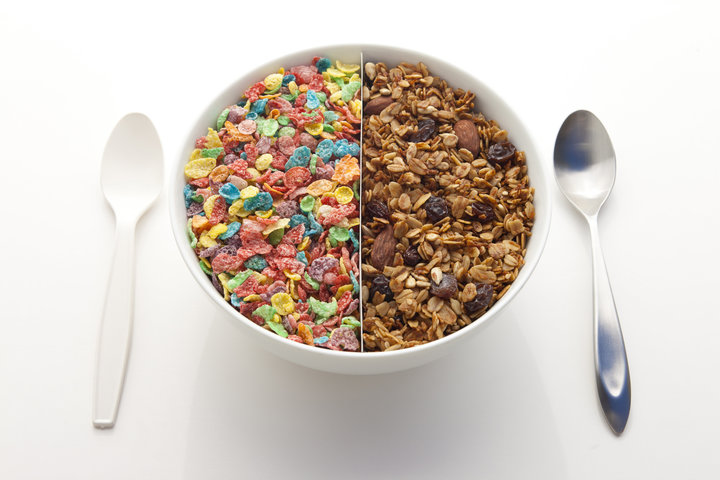Common Breakfast Foods That Aren't As Filling As You Think — And What To Eat Instead

Read original story on INSIDER
Breakfast may not be the most important meal of the day (as it was once believed to be), but like with any meal, ensuring you get the right nutrients is key to keeping you full and satiated for at least a few hours — until it's time for the next meal or snack. INSIDER consulted with NYC-based registered dietitians Natalie Rizzo, MS, and Rebecca Ditkoff, founder of Nutrition by RD, to get the scoop on what makes foods filling and which breakfast foods will leave you hungry for more.
Filling meals feature a balance of protein, fiber, and healthy fats.
"Three nutrients are key to making food filling — protein, healthy fats, and fiber," Rizzo told INSIDER.
She detailed the recommended daily intake of fiber for both men (38 grams) and women (25 grams), plus men and women over 50 (30 grams and 21 grams, respectively). For protein, Rizzo said needs vary depending on a person's size — around 0.3-0.4 grams per pound of body weight. This number is greater for more active individuals. Ditkoff added that age and medical history can also affect a person's recommended protein intake.
"Another way to think of protein needs is that a person should eat about 15-35% of their calories from protein," said Rizzo. “Fat should comprise 20-35% of your calories, with the majority of it coming from healthy fat sources like nuts, seeds, avocados, and fish.”
Skip refined carbs and sugary cereals.
Though reaching for a bowl of cereal (which probably has more sugar in it than you think) or a bagel may be convenient, and indulgences like pastries, muffins, and donuts can be tempting, these options will likely leave you wanting for more shortly after.
"Although refined carbohydrates may be emotionally satisfying, they lack fiber and protein and likely won't physically satiate you the same way a plate of eggs, whole wheat toast, and avocado would," said Ditkoff. She added that although complex carbohydrates (like oatmeal and whole wheat bread) are high in filling fiber, if eaten alone are not so satiating, either.
A piece of fruit or juice is a good start to a healthy breakfast, but it needs to be complemented by something else to keep you full.
Rizzo said fruit and juice “have some fiber, but they won't keep you full for much longer than an hour."
Opt for complex carbohydrates paired with healthy fats and protein.
Ditkoff noted that her example above "provides a balance of complex carbohydrates from the whole wheat toast, heart-healthy fats from the avocado, and protein from the eggs."
To power up a bowl of old-fashioned or steel-cut oats (both complex carbohydrates), Ditkoff recommended adding milk and nuts for extra protein and fat or, if you're making overnight oats, add in some protein-rich Greek yogurt.
For the cereal lovers out there, Rizzo offers up some tweaks to make it more nutritious and filling. "Generally, I would say to skip the sweets in the morning, but you can definitely make healthier whole grain cereal choices and pair it with some protein-rich milk and top with nuts," said Rizzo. “That's a pretty simple filling breakfast."
Here are some go-to breakfasts recommended by these registered dieticians:
One of Ditkoff's favorite breakfasts is a bowl of savory oats filled with 1/2 cup oatmeal, 3 tablespoons egg whites, hemp seeds, slivered almonds, and frozen berries. This sample meal provides a balance of protein, complex carbs, fiber, heart-healthy fats, and fruit.
"Since I'm always busy in the morning, I try to make convenience a priority," said Rizzo. Her go-to breakfast is plain or lightly sweetened Greek yogurt with nuts or a small nut-based bar.





